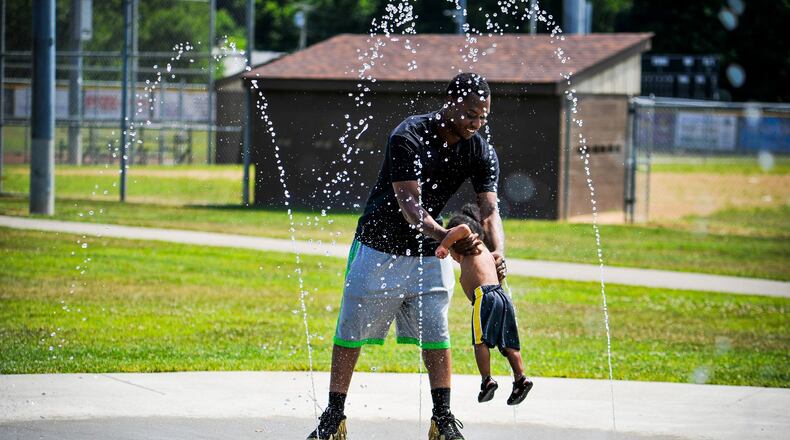An Excessive Heat Warning is in effect for the entire region from 2 p.m. Thursday to 8 p.m. Saturday.
The Lane Libraries will serve as cooling centers for the general public on Friday and Saturday. The libraries in Hamilton, Fairfield, and Oxford will be open from 9 a.m. to 6 p.m., which Butler County Emergency System Agency Director Matt Haverkos says covers the majority of the heat advisory.
RELATED: Butler County is finally dry, but the current heat wave presents its own challenges
“The libraries are spread out all over the county, which makes them good places to have as cooling centers,” Haverkos said.
The EMA will also work in coordination with the Salvation Army and the Red Cross, which will set up food and drinks, cooling chairs, and air conditioning trailers if needed.
This latest heat wave comes during a significantly warmer month for southwest Ohio. As of July 16, the average overall temperature for the month has been 79.3 degrees, which is 5.3 degrees warmer than the average in Dayton.
Storm Center 7 meteorologist Jesse Maag said that he cannot project whether this will be the hottest July on record for the county, but that this next wave will cause those numbers to jump much higher by the end of the month.
The sweltering warmth has kept fire departments busy this month, where emergency calls related to the heat have become more frequent. Hamilton Fire Chief Mark Mercer said in an earlier that there was a 37 percent increase in calls between June 27 and July 1, which he owed mostly to the intense heat.
Lolli said that no extra crews have been prepared yet, which are usually called on when temperatures reach 100 degrees or 110 with heat index added. These decisions are primarily made by shift commanders.
“The most important tip I have is to not leave your children in the car without air conditioning,” said Lolli. “It seems like we get a call for this every year and it’s always tragic.”
THE FORECAST
Thursday: High of 92, Low of 73 with isolated showers
Friday: High of 94, Low of 76, cloudy with heat index of 100
Saturday: High of 94, Low of 77, partly cloudy with heat index of 100
Sunday: High of 92, Low of 74 with a chance of storms
Middletown health commissioner Jackie Phillips asks people to follow these tips on how to prevent heat-related illnesses:
- Decrease physical activity. This is particularly advisable for joggers and junior/high school athletic teams or home activities such as mowing the lawn. Exercise activities should occur early in the morning or in the early evening. Stay in shade as much as possible.
- Wear loose, lightweight and light colored cotton clothing.
- Drink plenty of water.
- Eat light meals.
- Put the alcoholic beverages away until cooler weather. Alcoholic drinks can increase a person's risk to heat-related illnesses.
- Cool down with showers, baths, and recreational swimming.
- Adjust blinds, shades, and awnings to keep out sun.
- Use the basement during the hottest hours.
- Use a circulating fan to lower temperatures in living spaces. However, when temperatures exceed 95° F, a fan may not help unless it brings cool air into the location. Fans may even increase heat stress in very hot weather and should not be used to blow hot air directly onto the body.
- Be a good neighbor and check on those who may need assistance.
- Individuals with chronic health problems, such as heart disease or lung problems, should minimize activities because the heat will put additional stress on those systems.
- Extra caution should be taken for the elderly and young, infants and children to assure that they are protected from the heat and are exercising these helpful hints.
- Children and pets should not be left unattended in closed vehicles. Temperatures can reach dangerous levels rapidly.
- Be kind to your pets. Provide pets with shade and plenty of cool water.
About the Author
